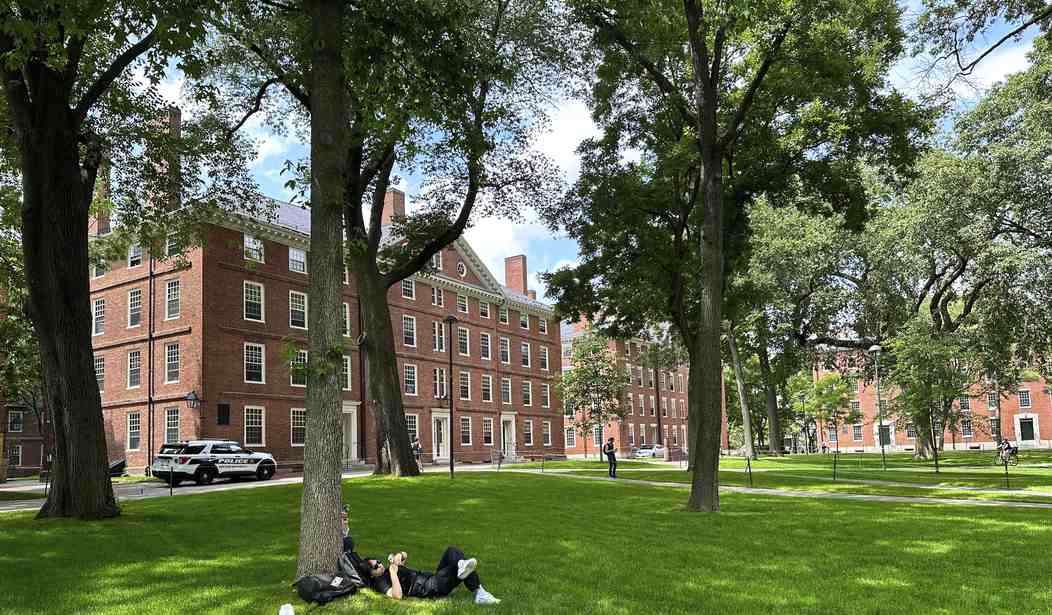It has been nearly five months since Claudine Gay resigned as the president of Harvard and nearly six months since the disastrous congressional testimony that got her in trouble. But finally today it appears as if the university itself has learned something.
The Institutional Voice Working Group was given the task in April of writing a report on how and when the university should issue official statements on political and social issues. Today the group issued its brief report which suggested the correct answer was never unless the issue directly related to the running of a university. Here's a sample:
To succeed, the university cultivates an environment in which its members can research, teach, and learn. This is its core function. It commits itself to the values of free inquiry, intellectual expertise, and productive argument among divergent points of view. These values, proper to the university environment, require nurture, support and defense in order for members of the university to do their work.
Accordingly, the university has a responsibility to speak out to protect and promote its core function. Its leaders must communicate the value of the university’s central activities. They must defend the university’s autonomy and academic freedom when threatened – if, for example, outside forces seek to determine what students the university can admit, what subjects it can teach, or which research it supports. And they must speak out on issues directly relevant to the university’s operation.
The university and its leaders should not, however, issue official statements about public matters that do not directly affect the university’s core function...
The university’s leaders are hired for their skill in leading an institution of higher education, not their expertise in public affairs. When speaking in their official roles, therefore, they should restrict themselves to matters within their area of institutional expertise and responsibility: the running of a university...
When pressure builds on the university to make an official statement, as will sometimes happen, the university should refer publicly to its policy. It should clarify that the reason for its silence is the belief that the purpose of the university is best served by speaking only on matters directly relevant to its function and not by issuing declarations on other matters, however important in themselves. Individuals within the university, exercising their academic freedom, sometimes make statements that occasion strong disagreement. When this happens, the university should clarify that they do not speak for the university and that no one is authorized to speak on behalf of the university except the university’s leadership.
The co-chairs of the working group gave an interview to the Harvard Gazette with some interesting quotes:
Noah Feldman: The main point of the report is that the University’s leadership can and should speak out on anything relevant to the core function of the University, which is creating an environment suitable for free, open inquiry, teaching, and research. That environment is threatened these days, and we need to defend it. At the same time, the University as an institution should not make official statements on issues outside its core function. Harvard isn’t a government. It shouldn’t have a foreign policy or a domestic policy...
What’s next? How does the University translate these principles into action?
Alison Simmons: For one, the community will need some time to get used to the idea that the University will not be speaking on a great number of things.
Feldman: Absolutely. With the University’s decision to take up these principles, there will need to be a significant culture shift as people realize, inside Harvard and outside, that the University has genuinely adopted a “say less” policy.
A "say less" policy sounds like a good idea in the majority of cases but in this particular case it's not clear it would have solved Harvard's problems with pro-Palestinian protesters. Say less might have kept Harvard out of public trouble when campus extremists first started making statements blaming Israelis for the actions of Hamas terrorists, but it's not going to spare the school from being sued by Jewish students who think administrators are allowing those campus extremists to create an anti-Semitic campus.
At some point most of the upset over campus protests had to do with a) the anti-Semitic campus climate and b) violations of campus rules about the time, place and manner of protests. Those are not political issues, they are issues related to running a university. In other words, Harvard has no excuse for not directly addressing these issues even under the new policy. Failure to treat pro-Palestinian protesters like everyone else would show favoritism to one side of the issue by giving them a pass on the rules.
Bottom line, even if administrators keep their mouths shut, the campus could still become a place run by student extremists unless Harvard also gets tough on enforcing the campus rules. Harvard's official silence won't solve that problem.







Join the conversation as a VIP Member